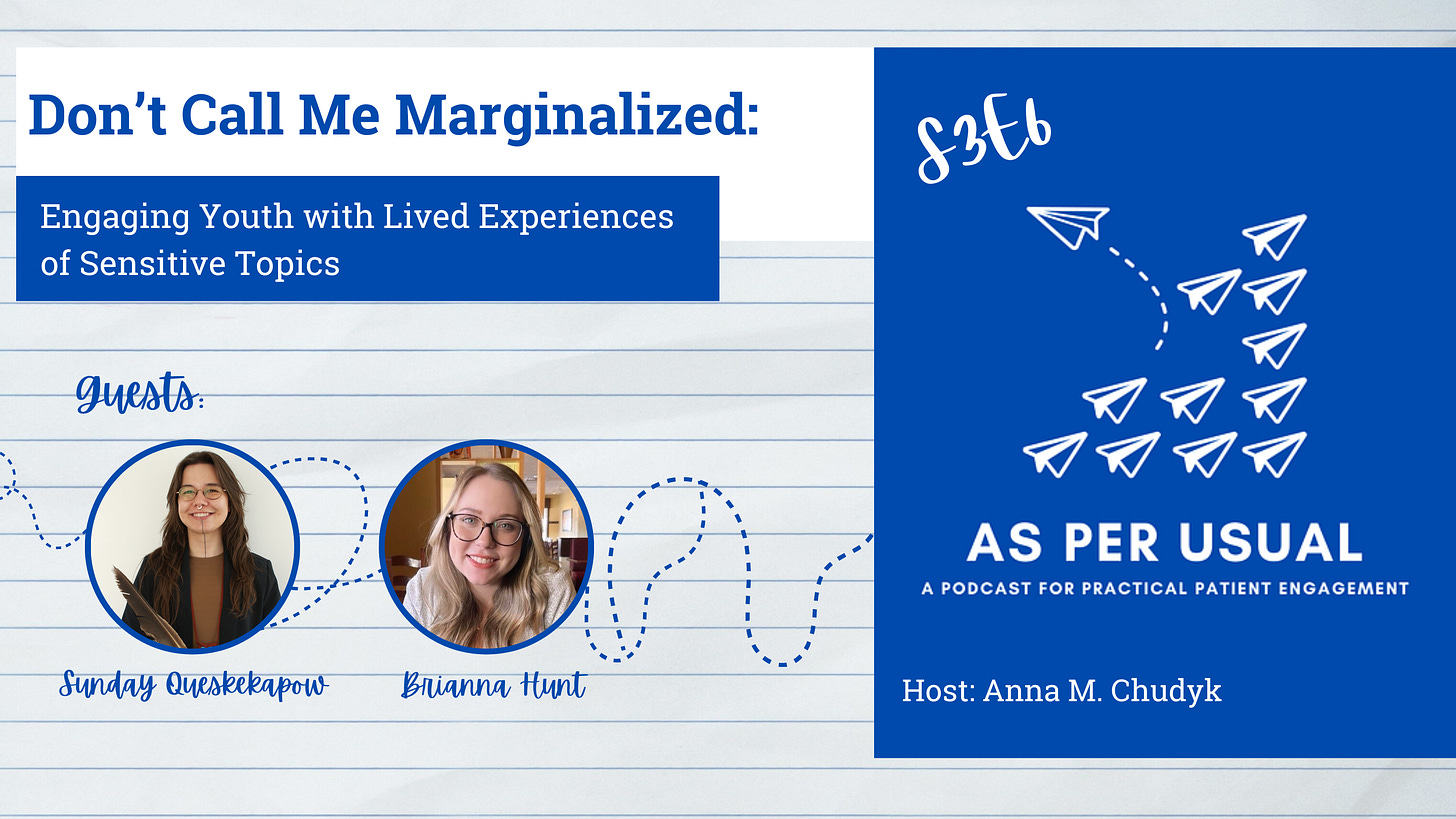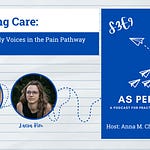Overview
In this latest episode of asPERusual, host Anna Chudyk is joined once again by Brianna Hunt and new guest Sunday Queskekapow to explore what it truly means to engage children, youth, and families with lived/living experiences of sensitive topics—such as homelessness, substance use, and systemic oppression—in health research. Building on their work in the Art as Knowledge Mobilization project, they discuss the importance of using art, ceremony, and community-rooted relationships to foster trust, safety, and meaningful participation in research.
Sunday, a Two-Spirit Swampy Cree advocate and peer researcher, shares firsthand how centering Indigenous methodologies and lived experience transformed the project into something affirming and empowering for youth participants. Brianna, a settler researcher and community advocate, highlights the need for justice-oriented research that not only avoids harm but actively dismantles oppressive systems. Together, they emphasize the vital importance of language, relationship-building, compensation equity, and collective data analysis in creating ethical and transformative research spaces.
🔑 Key Take-aways:
Lived/living experience must be at the center of research on sensitive topics to ensure ethical, trauma-informed, and culturally grounded approaches.
Language matters: Terms like “peer researcher” and “sensitive topics” empower participants more than labels like “vulnerable” or “marginalized.”
Relationships are foundational—building trust and mutual respect between researchers and communities is essential across all stages of the research cycle.
Honoraria and support must be thoughtful and equitable, reflecting participants’ expertise and lived experience on par with other research professionals.
Justice-oriented research goes beyond ethics—it aims to actively disrupt systems of inequity and empower communities through reciprocal partnerships.











